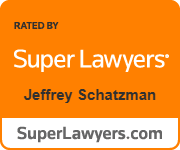TITLE AGENTS BEWARE! FAILURE TO VERIFY MORTGAGE LOAN PAYOFF CAN BE COSTLY
Jeffrey N. Schatzman | Miami, Florida | September 14, 2022
In the recent Middle District of Florida Bankruptcy case of, Pinero v. Rodriguez (In re Rodriguez), 2022 WL 1599970 (Bankr. M.D. Fla. May 10, 2022) (Colton, J.), there are several real estate and bankruptcy crossover lessons to be learned. First and foremost, for those in the title insurance industry, the case focuses on a title agent’s exposure for not adequately verifying a loan payoff. The court further explains why a title agent may be out of luck in trying to recover for such a mistake if the seller utilizes the proceeds of a sale to purchase and/or refurbish a new Florida homestead property.
The plaintiff in the case is Helens Pinero, who was doing business as Epic Title Group (“Epic”). Epic was the title agent who closed the sale of the Hialeah, Florida home of the debtors/defendants, Orlando Rodriguez and Loreta Barbara Ramirez (the “Debtors”). The Debtors had two mortgages on their home – a first mortgage to Wells Fargo and a second mortgage to the Secretary of Housing and Urban Development (“HUD”). Apparently, the HUD loan was prepared by Wells Fargo as part of an FHA HAMP modification of the Wells Fargo loan. The HUD mortgage was being serviced by NOVAD. The Debtors were not well educated and because they had only been paying Wells Fargo, they believed that both mortgages were with Wells Fargo.
The title commitment obtained by Epic during the transaction indicated that both mortgages needed to be satisfied. During several conversations, the Debtors explained to Epic that the only payments they were making were to Wells Fargo. Based on these conversations, Epic contacted Wells Fargo for a payoff of what it believed to be for both mortgages. However, without Epic realizing it, Wells Fargo only provided a payoff for its first mortgage, which did not include the HUD mortgage.
Epic assumed that it received the full payoff for both mortgages based on Wells Fargo’s advice that “if the FHA case number on the HUD mortgage matched the Wells Fargo mortgage, the payoff information for the Wells Fargo mortgage would include the amount due to HUD.” It was not until after the closing that Epic found such information not to be correct. Despite the fact that both mortgages contained the same FHA case number, the payoff information for the Wells Fargo mortgage did not include the amount owed to HUD.
Epic closed the transaction and paid Wells Fargo the amount stated in their payoff letter. Epic disbursed the balance of the sale proceeds to the Debtors who used the funds to purchase and renovate their new home in Spring Hill, Florida. Although everyone believed the HUD mortgage was paid off at closing, several months later, the Debtors received a letter from HUD demanding payment on the HUD mortgage. The Debtors were unable to pay HUD, so HUD looked to the title insurance underwriter, Fidelity National Title (“Fidelity”) for payment. After paying off HUD, Fidelity then turned to Epic to satisfy the claim. Although Epic had worked out a payment arrangement with Fidelity, it continued to pursue the Debtors for reimbursement.
About two years after the closing on the Hialeah house, the Debtors filed bankruptcy under Chapter 13. Epic filed an adversary proceeding in the bankruptcy case looking to recover against the Debtors (1) by seeking to impose a constructive trust against the Debtors’ new home due to fraud and unjust enrichment; (2) for reduction in the Debtors’ homestead exemption under 11 U.S.C. § 522(o); (3) objecting to the dischargeability of the Debtors’ debt to Epic; and (4) for civil theft.[1]
Because the facts showed that there was no fraud or egregious conduct by the debtors in obtaining the funds used to buy and renovate their new home, and determined it to be an innocent mistake by all parties, the court refused to impose a constructive trust or equitable lien against the Debtors’ Spring Hill property, did not reduce the Debtors’ homestead exemption and determined that the debt to Epic was dischargeable.
In rendering its decision, the court relied on Havoco of America, Limited v. Hill, 790 So.2d 1018 (Fla. 2001). In Havoco, the Florida Supreme Court was asked to decide the certified question of whether Florida’s homestead exemption protects Florida homestead property when the debtor acquired the homestead property using non-exempt funds with the specific intent to hinder, delay, or defraud creditors. The court answered the question in the affirmative by reasoning that Florida’s Constitution provides for only three instances where a homestead could be subject to a forced sale – (1) for the payment of taxes and assessments thereon; (2) obligations contracted for the purchase, improvement or repair thereof; and (3) obligations contracted for house, field or other labor performed on the realty. Although it found that such conditions did not exist in that case, the Havoco court stated that a fourth exception could exist to impose an equitable lien in an instance where fraudulently obtained funds were used to purchase or enhance the equity of a homestead property.
Since the bankruptcy court found that failure to pay off the HUD loan was an innocent mistake and not under fraudulent or egregious circumstances, judgment was rendered in favor of the Debtors on all counts.
In another practice pointer concerning this case, for a cause of action for civil theft under Florida Statutes § 771.11, a defendant is entitled to recover attorney’s fees if “the claimant raised a claim that was without substantial fact or legal support.” Epic pursued its civil theft claim up to the day of trial before it abandoned it. The court found that even though Epic abandoned its civil theft claim, the claim was without substantial fact or legal support and therefore warranted awarding the Debtors attorney’s fees and costs for defending the civil theft claim.
[1] The civil theft count was abandoned the morning of trial.



